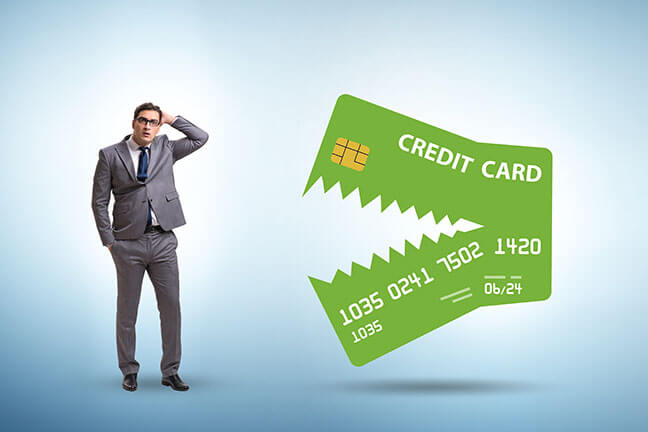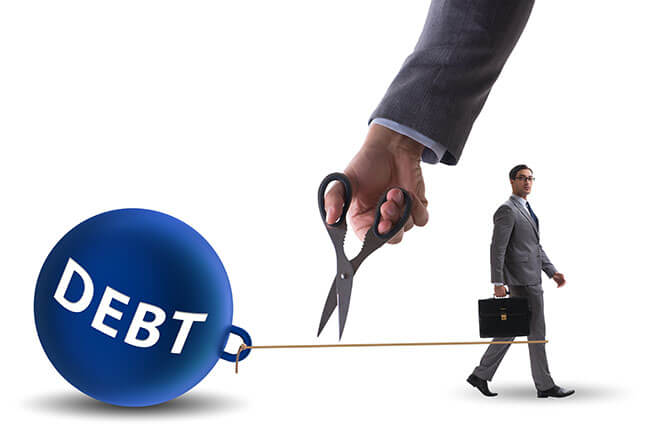You’ve finally decided to stop ignoring your mounting pile of debt and actually do something about it. That’s the first step. Now comes the tricky part: Deciding what debt to tackle first. Should you start with the highest interest rate, largest balance, smallest balance to build momentum, or something completely different?
There are a couple strategies to consider, in this blog post — we’re going to discuss what they are as well as how to implement them. Do you need some quick wins to stay motivated or do you want to mathematically optimize and save the most money in the long run? Either way, with a plan and some determination you could become debt-free sooner than you think. Keep reading to determine the best way to pay off your debt.
There Are Different Types of Debt?
That’s right! There are different types of debt. Before we talk about paying it, we need to understand which types you could have. Different types refer more to where they came from. Some of the most common sources of debt are credit cards, auto loans, mortgages, or private or federal student loans.
Credit Card
Firstly — credit card debt typically is the highest interest debt, so paying this off first will save you the most money. Make your minimum monthly payment on other debts and put any extra cash towards the credit card balance with the highest APR. Once that’s paid off, move on to the next highest rate card.
Personal Loans
Next we have personal loans. Personal loans, like those for cars, education, or expensive home improvements, usually have lower interest rates than credit cards. Still, the sooner you pay them, the less interest is paid overall. Create a budget to put more money each month towards your personal loan. Any windfalls like tax refunds or bonuses should also go straight to this debt.
Mortgages
Mortgages typically have the lowest interest rates and longest repayment terms. While paying off your mortgage early can save thousands in interest charges, it may not make financial sense if you credit cards or loans to pay first. However, making one extra payment a year or increasing monthly payments by just $50 to $100 can shave years off a 30-year mortgage.
When it comes to debt, the bottom line is that the best approach depends on your unique situation. Pay off high-interest debts first to save the most money while maintaining minimums on lower-rate debts. Once high-cost debts are repaid, put that money towards other balances until you’re debt-free. With focus and some discipline, you can eliminate debt and achieve financial freedom.

Targeting Small Balances With the Snowball Method
So how do you actually start paying off this debt? Well, we talked about starting with your highest interest debt, but that doesn’t necessarily work for everyone. So in case it doesn’t work for you, let’s discuss a strategy called the Snowball method.
Target the smallest balance
Look at all your debts— credit cards, medical bills, personal loans, student loans, etc. This time, pick the one with the lowest balance, regardless of interest rate. Make minimum payments on all other debts while putting as much as you can towards the smallest balance each month until it’s paid off.
Once the smallest debt is paid off, take the money you were putting towards that debt and apply it to the next smallest balance. Continue this snowball effect until all your debts are paid off. Sure, this isn’t the most financially efficient method, but the psychological win of quickly paying off multiple debts can keep you motivated to achieve your ultimate goal.
For example, you have:
- Credit card 1: $500 balance at 15% APR
- Credit card 2: $2,000 balance at 10% APR
- Personal loan: $8,000 balance at 5% APR
Start by paying the minimum monthly payments on the personal loan and credit card 2 while putting any extra money towards credit card 1. Once that’s paid off in a couple months, take the money you were putting towards credit card 1 and apply it to credit card 2. Finally, once credit card 2 is paid off, focus all your energy on that once intimidating personal loan. This method can help you pay off debt faster by building momentum.
The important is to start small and celebrate wins along the way. Paying off debt is challenging, but using a method like the debt snowball effect can make it an attainable goal and help change your financial habits for the better in the long run. Stay committed and keep up the good work—you could be debt-free before you know it!
Hybrid Approach
Can’t decide on a method? A hybrid method combines the benefits of snowball method and debt avalanche method. Focus extra payments on one small, high-interest debt first to build momentum. Then switch to the debt with the next highest rate, regardless of its size. This balance of psychology and math could work well for many. You gain quick motivation from wiping out a small debt, then logically work on reducing interest costs.
Choose an approach that fits your unique situation and financial priorities. Gaining control of your debt is challenging, so set yourself up for success by customizing your debt payoff methods you can stick to long-term. Make adjustments as needed and stay focused on becoming debt free.

How do I avoid getting in Debt Again?
Once you’ve paid off your high-interest debts, it’s important to avoid accumulating more debt again in the future. Here are some tips to help break the debt cycle:
Start by Making a budget
Check your income and expenses to understand your cash flow. Look at where you can reduce costs. Account for occasional or yearly expenses as well. Stick to your budget each month to avoid overspending.
Pay cash
Using physical cash instead of credit cards helps ensure you only spend what you can afford. When you pay cash, your money is visually disappearing which leads to more mindful spending.
Leave credit cards at home
Don’t carry your credit cards with you when you leave home to reduce temptation and impulse purchases. Only use credit cards for essential items or emergencies.
Look for ways to increase your income
Whether it’s asking for a raise at work, developing a side hustle, using some cash-back apps, or finding a higher-paying position, more money coming in means faster debt payoff. Build your skills using online courses or certifications to open up more career opportunities.
Cook more and eat out less
Dining out frequently is a huge expense for many. Cooking at home using fresh ingredients saves a lot of money. Try meal prepping on the weekends to make cooking during the week quicker and easier. You’ll find your waistline and wallet will both benefit from home cooking.
Start Paying off Debt FREE With EASY Wireless!
We understand that debt is stressful. But what if we told you we could help make your life easier while paying it? Thanks to government programs like Lifeline & ACP, help is out there whenever you need it.
Starting with EASY Wireless’ free phone & data plan, which could help you receive some incredible benefits to help you live well while on a budget. Here’s what you could receive:

EASY Wireless Free Service Plan
- FREE Data
- FREE Unlimited Talk
- FREE Unlimited Text
- FREE SIM Card Kit and Activation
- Choose to Keep Your Number or Get a New One
To start with EASY Wireless, apply online by clicking the below:
Start Saving Today!
Or you can come to one of the EASY Wireless’s retail stores, where our customer service agent will help you apply for your benefits.


